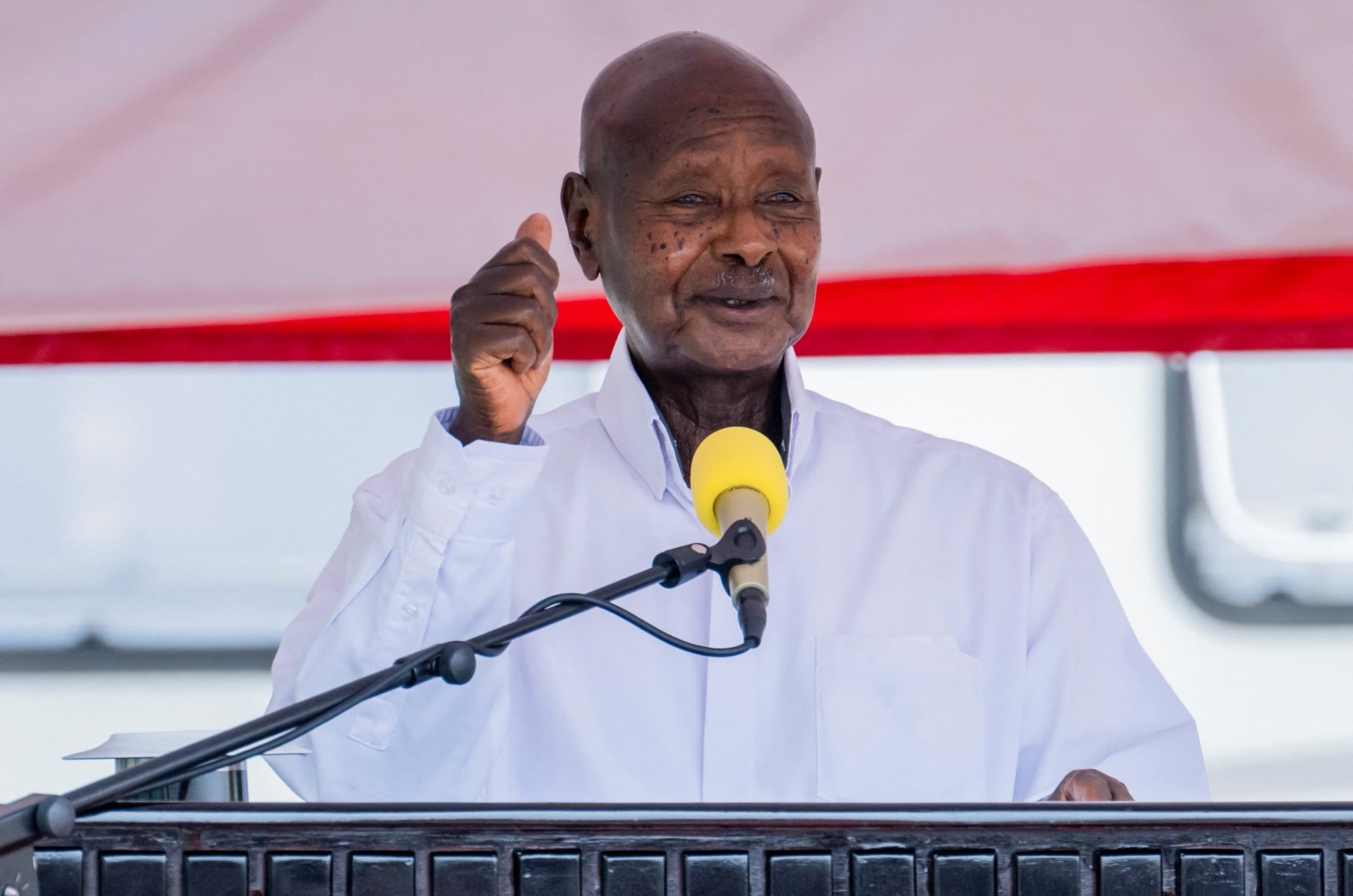We're loading the full news article for you. This includes the article content, images, author information, and related articles.
As President Yoweri Museveni's 39-year rule extends, the unresolved question of his succession, highlighted by his son's controversial rise, poses significant economic and security implications for key trading partner Kenya and the wider East African region.

NAIROBI, Kenya - Now in his sixth elected term, Ugandan President Yoweri Museveni, who first took power in January 1986, stands as one of Africa's longest-serving leaders. His nearly four-decade rule has been marked by a consolidation of power through constitutional changes, a suppressed opposition, and a growing debate over his succession, a matter of critical importance to regional stability and to Kenya, Uganda's primary gateway to the sea and a major economic partner.
The next general election in Uganda is scheduled for January 12, 2026, with presidential nominations slated for late 2025. President Museveni has already confirmed he will seek another term under his National Resistance Movement (NRM) party.
President Museveni's extended stay in power has been legally enabled by two key constitutional amendments. In 2005, Uganda's parliament voted to remove the two-term limit for the presidency, allowing him to run for a third term. More significantly, in December 2017, parliament passed a controversial bill to scrap the presidential age limit of 75. This move, signed into law by Museveni on December 27, 2017, made him eligible to contest the 2021 elections and subsequent polls.
The 2021 general election was fraught with controversy. The electoral commission declared Museveni the winner with nearly 59% of the vote against his main challenger, pop star-turned-politician Robert Kyagulanyi, popularly known as Bobi Wine, who garnered 35%. The election was marred by a state-imposed internet shutdown, allegations of widespread fraud, and a violent crackdown on opposition supporters. Bobi Wine, who described the poll as "the most fraudulent election in the history of Uganda," was placed under house arrest shortly after the vote. He later withdrew a legal petition challenging the results, citing a lack of confidence in the judiciary's independence.
Central to the political discourse in Uganda is the question of who will succeed Museveni. This debate has increasingly focused on his son, General Muhoozi Kainerugaba. His rapid ascent through the military ranks culminated in his appointment as the Chief of Defence Forces (CDF) on March 21, 2024. This appointment is widely seen by analysts as a move to position him for a potential takeover.
General Kainerugaba's political ambitions have direct and often unsettling implications for Kenya. In October 2022, he caused a diplomatic firestorm with a series of tweets, including a threat that his army could capture Nairobi in under two weeks. The remarks triggered outrage in Kenya and forced President Museveni to issue a formal apology to "our Kenyan brothers and sisters." While removing his son as commander of land forces, Museveni simultaneously promoted him to the rank of a full general. Kainerugaba has continued to make provocative statements, further heightening concerns in Nairobi about potential instability and unpredictable leadership in a critical neighbouring state.
The political future of Uganda is inextricably linked to the economic health and security of the East African Community (EAC), of which Uganda is a founding member. For Kenya, the stakes are particularly high. Uganda is a vital trading partner and the main transit route for Kenyan goods destined for the Great Lakes region, including South Sudan, Rwanda, and the Democratic Republic of Congo.
According to the Observatory of Economic Complexity, Kenya's exports to Uganda in 2023 were valued at approximately $893 million. A Central Bank of Kenya report noted that in the first seven months of 2024, goods valued at $599.2 million were transported from Kenya to Uganda. Any political instability arising from a contentious succession could severely disrupt this trade corridor, impacting Kenyan businesses and the flow of goods from the Port of Mombasa.
As the longest-serving leader in the region, President Museveni has been a central figure in the EAC's dynamics. While his long tenure has provided a degree of predictability, the uncertainty surrounding Uganda's next political transition presents a significant challenge. A stable and predictable Uganda is crucial for the collective security and economic integration of the entire East African bloc. As the 2026 election cycle approaches, policymakers and business leaders in Nairobi and across the region will be watching developments in Kampala with keen interest.
Keep the conversation in one place—threads here stay linked to the story and in the forums.
Sign in to start a discussion
Start a conversation about this story and keep it linked here.
Other hot threads
E-sports and Gaming Community in Kenya
Active 9 months ago
The Role of Technology in Modern Agriculture (AgriTech)
Active 9 months ago
Popular Recreational Activities Across Counties
Active 9 months ago
Investing in Youth Sports Development Programs
Active 9 months ago
Key figures and persons of interest featured in this article